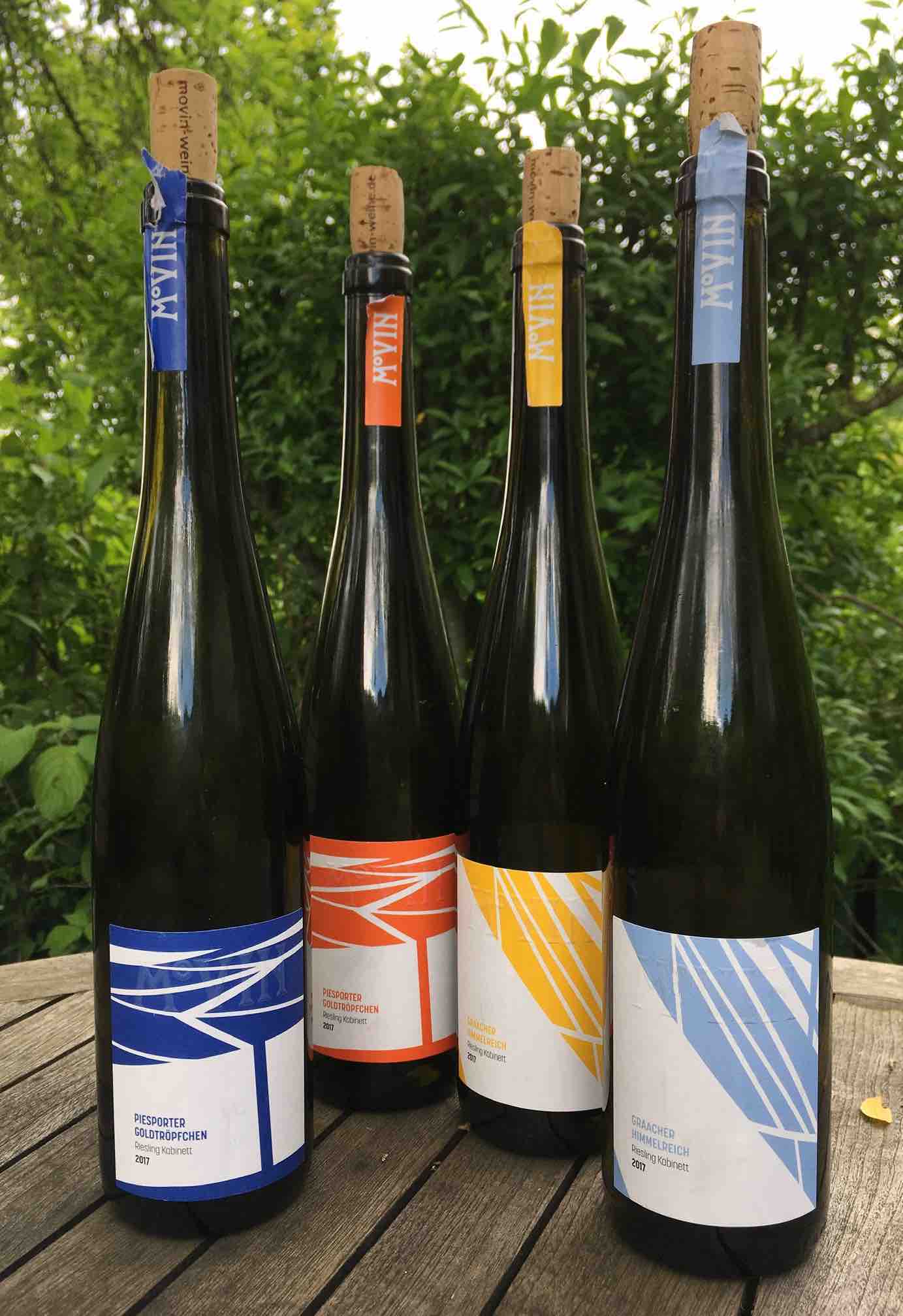
M°vin stands for wine from the Mosel, actually rather for fruit sweet Cabinet wines. Only these are offered by M°vin, which goes back to an initiative of the native Moselles Roman Bastgen and Felix Schon. During their studies in Cologne the two made the experience that the Cabinet wines of their home were very well received with their Cologne friends and acquaintances, even with those who wanted to drink only very dry wines.
So they came up with the idea to market these wines under the label M°vin and thus make these typical Mosel wines better known. For this idea, they have won some young winemakers from the Moselle, each of which contributed a cabinet to the portfolio of M°vin. We hopefully contribute with this blog to generate more attention for these typical Moselle wines. We tasted four wines that M°vin provided to us. Cabinet wines from two different well-known and excellent locations of the Moselle, from four winemakers. All winegrowers have given us additional information about wines and / or vineyard and cellar.
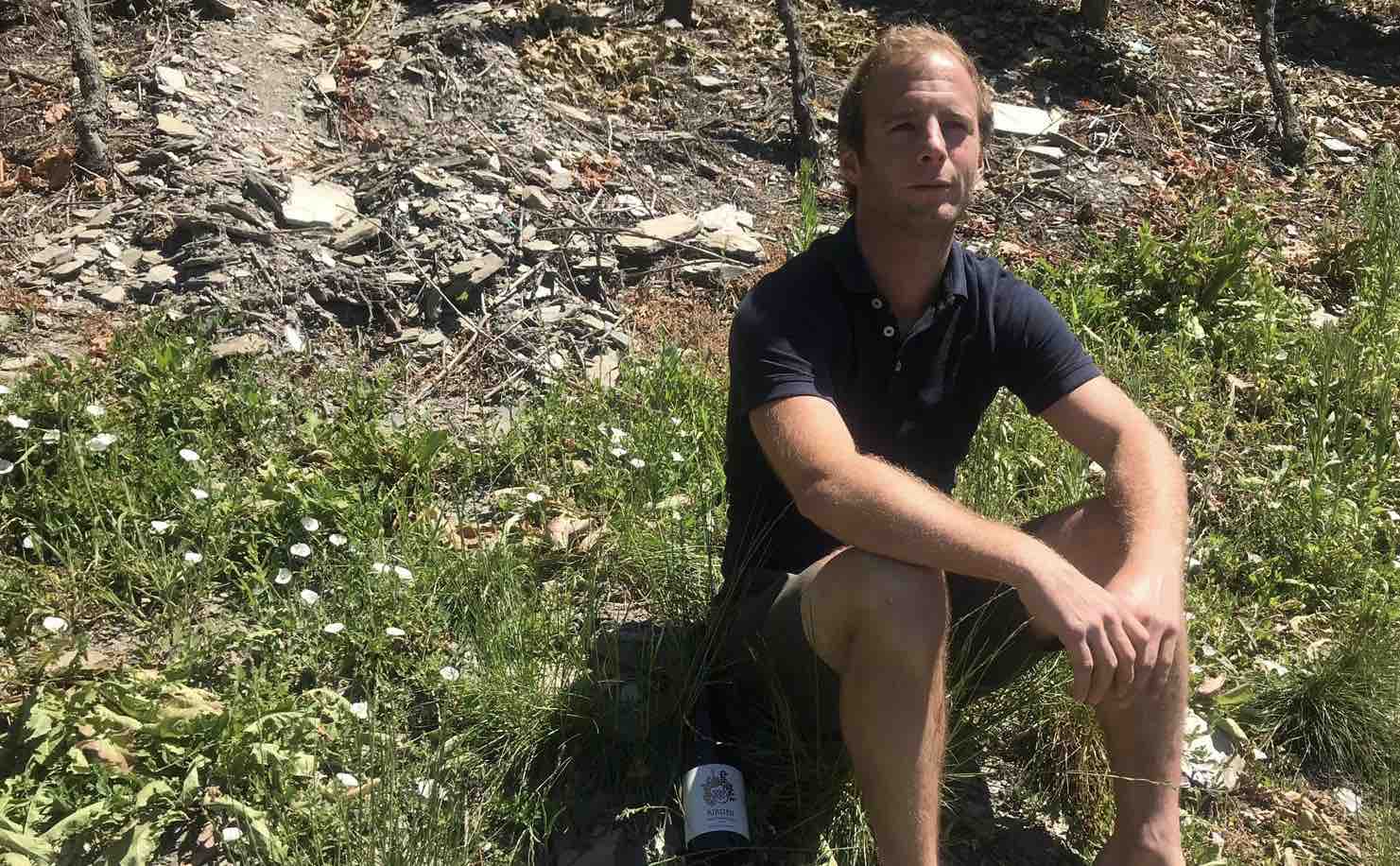
Daniel Kirsten has been responsible for the wine cellar in his parents’ winery for six years. Originally, he was not drawn to the profession of wine maker, until after completing a carpentry apprenticeship, he turned to viticulture. He is currently working at the DLR (Dienstleistungszentrum Ländlicher Raum) Mosel and is thus well informed about new developments in viticulture.
His motto in the vineyard is: Well-maintained inactivity, means, he performs only common work such as pruning. No fertilization for 12 years and a spontaneous coverage in greenery have led to a species diversity typical of the location. This not only means that soil flora and fauna are in order, but also that the location or the parcel speaks, so the wine is characterized by its location.
Daniel Kirsten believes that great wines are created in the head, so you have to know what you want. He has therefore spent a lot of time in the last twelve years figuring out which vineyard is best for which wine type. This is also the case with the tasted Riesling Kabinett 2017, whose grapes come from 2-3 cooler, somewhat higher-lying plots that are lying in the shade relatively early. The grapes are harvested relatively early to preserve the juiciness and acidity of the Riesling. Cooling of the must, no sulphurization of the must, then waiting for the spontaneous fermentation to begin. After the fermentation stop by cooling, the cabinet wine remains on the gross lees until about mid-December, then until bottling for about two months on the fine lees.
Piesporter Goldtröpfchen Kabinett 2017, Daniel Kirsten
In the nose orange, spicy notes, some bergamot, delicate herbal spice on the palate, orange-fruity, prominent acidity, looks well integrated, nice play of acidity and sweetness, nice finish with powerful fruit. Very good wine.
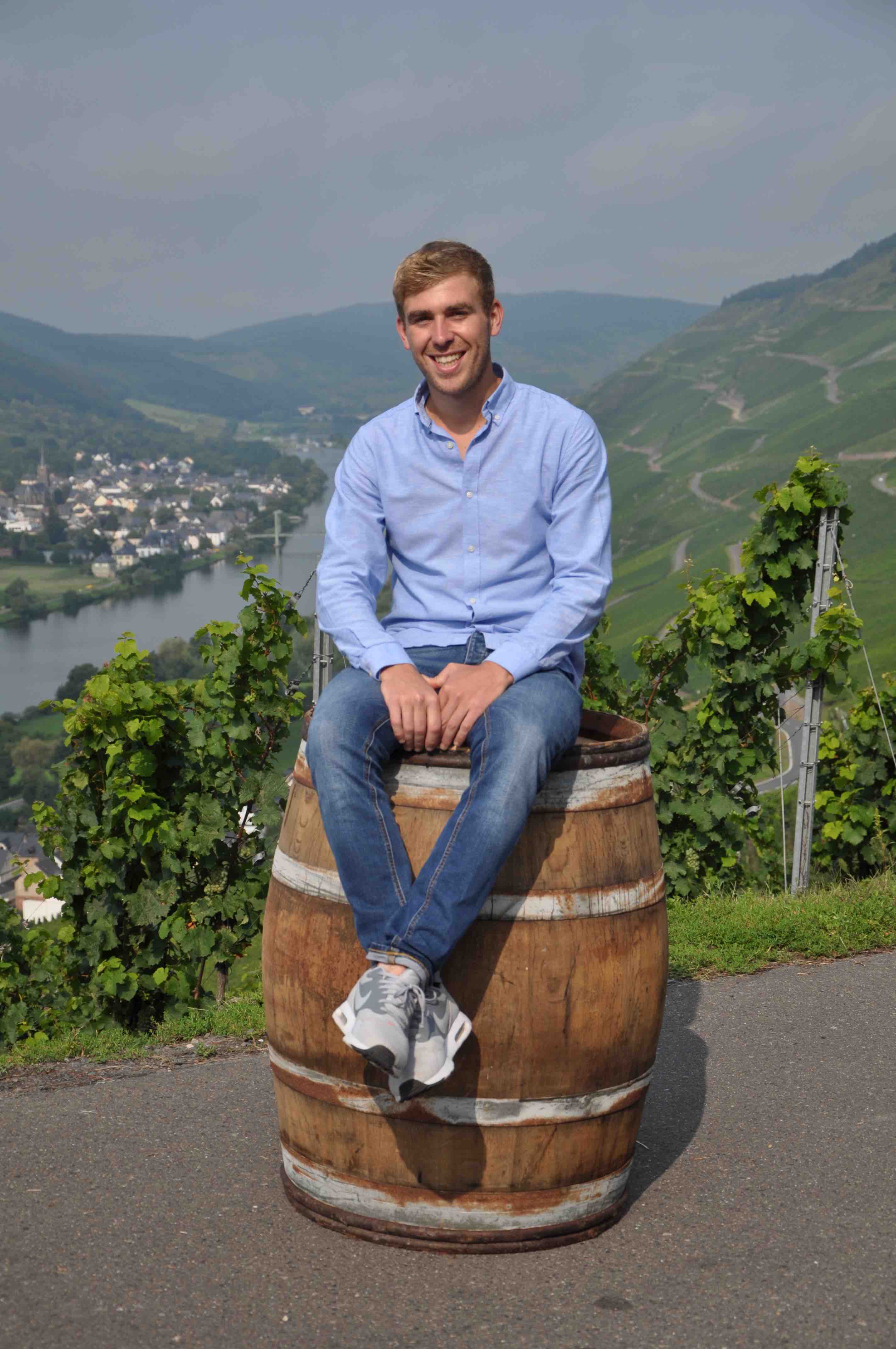
Already at the age of about twelve Florian Blesius realized that he wanted to work in viticulture. Now he has been working in his parents’ winery for 13 years. His motto for his wines: As little as possible. This starts in the vineyard, where as little soil-loosening as possible, and in principle no fertilization is on the agenda and continues with the wines, which remain on the gross lees after fermentation, to filtration and the immediately following filling.
The grapes for the 2017 Kabinett tasted come from various parcels of the Graacher Himmelreich. When harvesting, care is taken to harvest only healthy, not too ripe grapes, which in no case should have botrytis. The manual harvest takes place in small boxes, which, emptied in 700 l stainless steel hods, are transported to the winery and spontaneously fermented there after being pressed. In the case of the 2017 Kabinett, the fermentation lasted from early October to mid-November 2017, filling has been in April 2018.
Graacher Himmelreich Riesling Kabinett 2017, Florian Blesius
Good wine with a triad of fruit, spicy and delicate floral notes, good complexity and a very nice finish with good length.
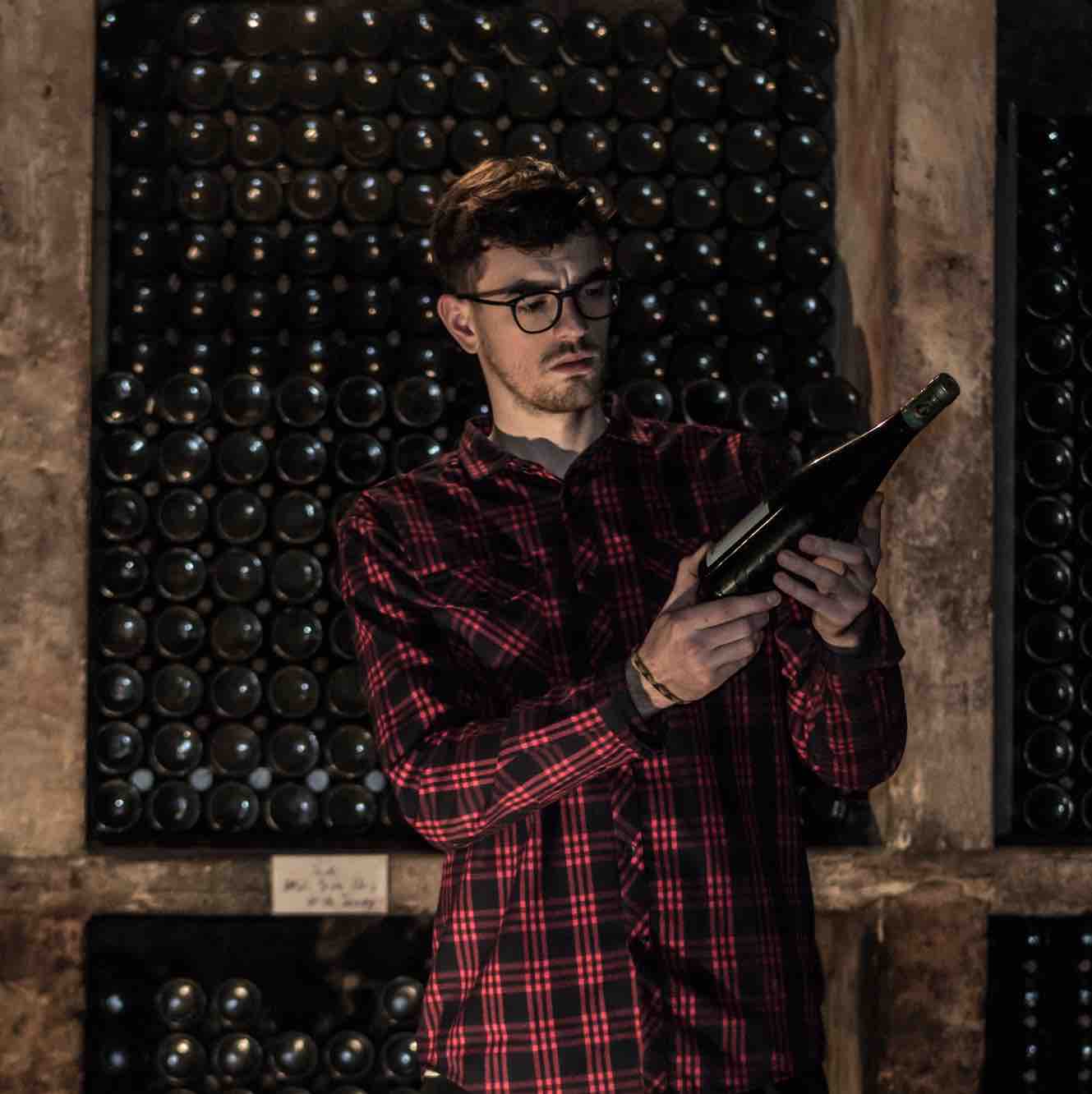
Mathias Kerpen completed his winegrowing apprenticeship at the river Mosel with Thorsten Melsheimer and in the Palatinate with Gregor Meßmer and will graduate at the beginning of next year the study of viticulture and oenology in Geisenheim, which he started after completing his apprenticeship . Since 2015, he is responsible for the wine cellar in his parents’ winery, provided that time allows it.
When it concerns wine, he follows the philosophy: Quality arises exclusively in the vineyard. That means for him, that only a perfect work in the cellar can preserve the quality of the work done in the vineyard.The vineyards are fertilized as needed, exclusively organically, usually this is about every three years. The grapes are harvested physiologically ripe. In healthy years, there is no selection of grapes, for the Cabinet wines is that the grapes should always be 100% healthy. The manual harvesting takes place in small 40l container. After gentle pressing and sedimentation in the primary clarification tank, follows the fermentation with indigenous yeasts in wooden barrels. The first sulphurization takes place when stopping the fermentation. The stabilization of the wine is done solely by the factor time, all according to the motto, as much as necessary, as little as possible.
Graacher Himmelreich Riesling Kabinett 2017, Mathias Kerpen
The bouquet has some botrytis and delicate honey, slightly stony hints, citrus and some tannins in the mouth. Good, drinky wine with a neat finish, supported by delicate bitter notes and a light tannin.
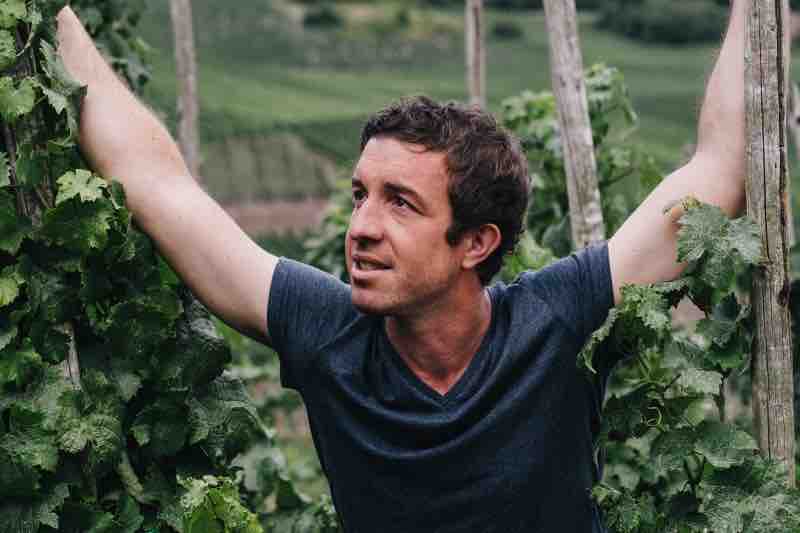
Mario Schwang studied beverage technology and oenology in Geisenheim and in 2006 took over the Winery Reuscher-Haart in Piesport from his father. The winery can look back on a centuries-old tradition – the representative of the 29th generation of the family tribe is Mario Schwang’s three-month-old son Carlo.
Four points determine the philosophy of the winery. Class instead of mass, which means on the one hand to create optimal conditions for the vines and on the other hand to positively influence aroma and mineral substances by yield restriction. Growth in harmony with nature, another point, executes this, for example through greeny in the vineyards, but by creating an intact micro-flora and fauna, also paves the way to the next point in the wine-growing philosophy: Every wine has its own character , which refers to spontaneous fermentation and the targeted vintage and terroir specificity of the wines. The last point: Natural winemaking considers a controlled idleness as the ideal to strive for.
Cabinet wines have been in the focus of the winery for decades. For Mario Schwang characteristic and aroma quality of the Kabinett are extremely important, meaning that the time of harvesting the grapes for a cabinet wine is oriented on aroma and ripe acid and not on the alcohol content. Especially for the Kabinett applies that its fruity acidity and the slate minerality of the steep vineyards of the Mosel optimally buffer its opposite residual sweetness.
Piesporter Goldtröpfchen Riesling Kabinett 2017, Mario Schwang
Hay, lemon zest, delicate herbaceous notes, on the palate herbaceous, slightly medicinal notes, fine minerality, light fleshy, fresh acidity, well balanced, good persistency, firm, good trait, powerful on the finish. Good wine.